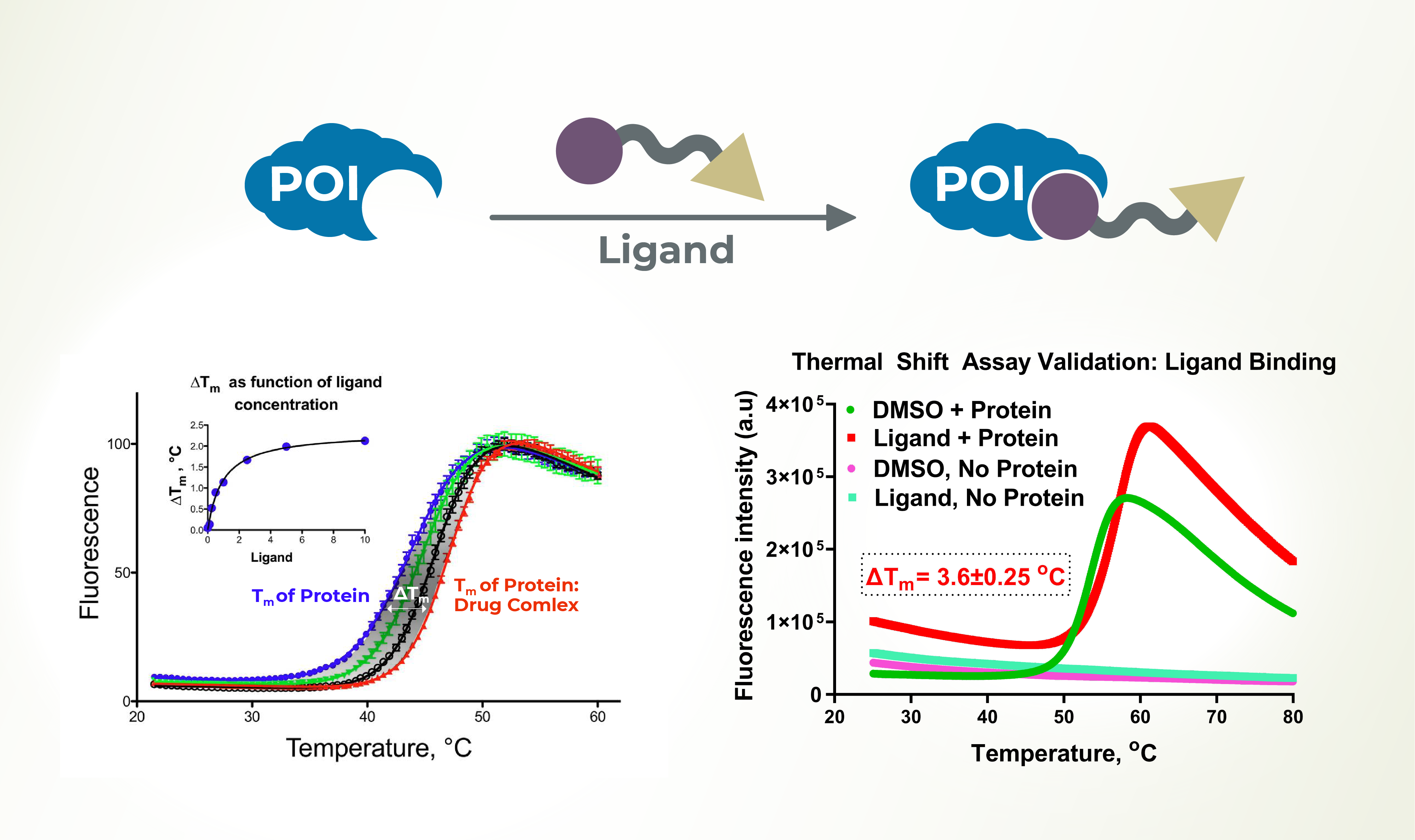Generating experimental data for ligands binding to target proteins of interest as well as determination of ligand binding affinity (Kd) is essential for drug discovery. The thermal shift assay is a quick and easy method to generate ligand-protein binding data, and is widely employed across several target proteins and compounds, including natural products. LifeSensors has established a robust protein thermal shift assay platform and offer services to facilitate ligand discovery and characterization for clients. Together with our proprietary protein expression and purification technology, Lifesensors can help you discover ligands for difficult to express target proteins.
Service Highlights
- Label Free Technology amenable to a HTS
- Independent of catalytic activity
- Characterization of small molecule and PROTACs binding to target proteins
- Facilitates identification of E3 and DUB ligands
Related Products
TUBE1
Coated polymeric high-capacity magnetic beads to allow superior enrichment of polyubiquitinated proteins along with minimizing non-specific binding to proteins in tissue and cellular lysates.
Agarose-TUBE1
TUBEs display up to a 1000-fold increase in affinity for polyubiquitin moieties over the single ubiquitin binding associated domain (UBA). In addition, TUBEs protect polyubiquitinated proteins from deubiquitination and proteasomal degradation, allowing for detection at relatively low abundance.
VU1
Monoclonal antibodies that recognize polyubiquitylated proteins and free ubiquitin. VU-1 has been shown to recognize all ubiquitin linkages (mono, K6, K11, K27, K29, K33, K48, K63, and linear) by Western blotting. VU-1 is an excellent antibody for immunostaining applications generating robust ubiquitin detection and low background with an ability to detect subcellular ubiquitin localization.

